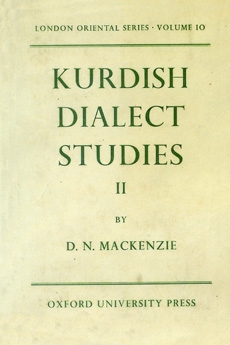|
To my wife
INTRODUCTION
The prime purpose in collecting these texts was to obtain material which could serve as a base for, or at least illustrate, a grammatical description of the individual dialects of Kurdish spoken in northern Iraq.1 The first problem, naturally, was to find informants who spoke the various dialects in something approaching purity, and then to record examples of their normal speech. Thus, to ensure that they should speak as naturally and fluently as possible, all the speakers were encouraged to talk on whatever subject they themselves preferred. The result is a somewhat mixed bag of folk-tales, anecdotes, and descriptive and autobiographical pieces. Although rather disconcerting at first sight, this mixture will, I hope, be found to justify itself as giving a broader view of Kurdish speech habits than would a collection entirely of, say, folk-tales.
Where circumstances permitted, the text, or at least the first part of it, was recorded directly on magnetized tape and later played back repeatedly to the speaker and noted down in his presence, with his assistance at any unclear passage.
As the number of tapes available was limited, however, some texts were taken down directly from dictation, and suffer accordingly from all the lack of spontaneity, and even accuracy, that this method entails. In one case (see Amadiye, p. 319) two versions of the same texts are given-the first from dictation, while the tape-recorder was out of order, and the second from a direct recording made later. Only in a few cases, when there was no alternative, was a tape-recording made, to be played back later and noted down without the assistance of the speaker. This applies particularly to the Xōšnāw and Barwāri-žôr texts, and in publishing them a number of unclear passages have been omitted, or marked as doubtful.
A word of apology must be said to those readers interested only in the folk-tales herein. A number of them will be found to be incomplete. Those speakers who chose to tell such tales were often …
1 This description has appeared in the London Oriental Series under the title Kurdish Dialect Studies - I, O.U.P., 1961.
2 The passages which were so recorded are indicated at the beginning of each section below. Most of the recordings have been preserved and copies are obtainable from the author.
| 